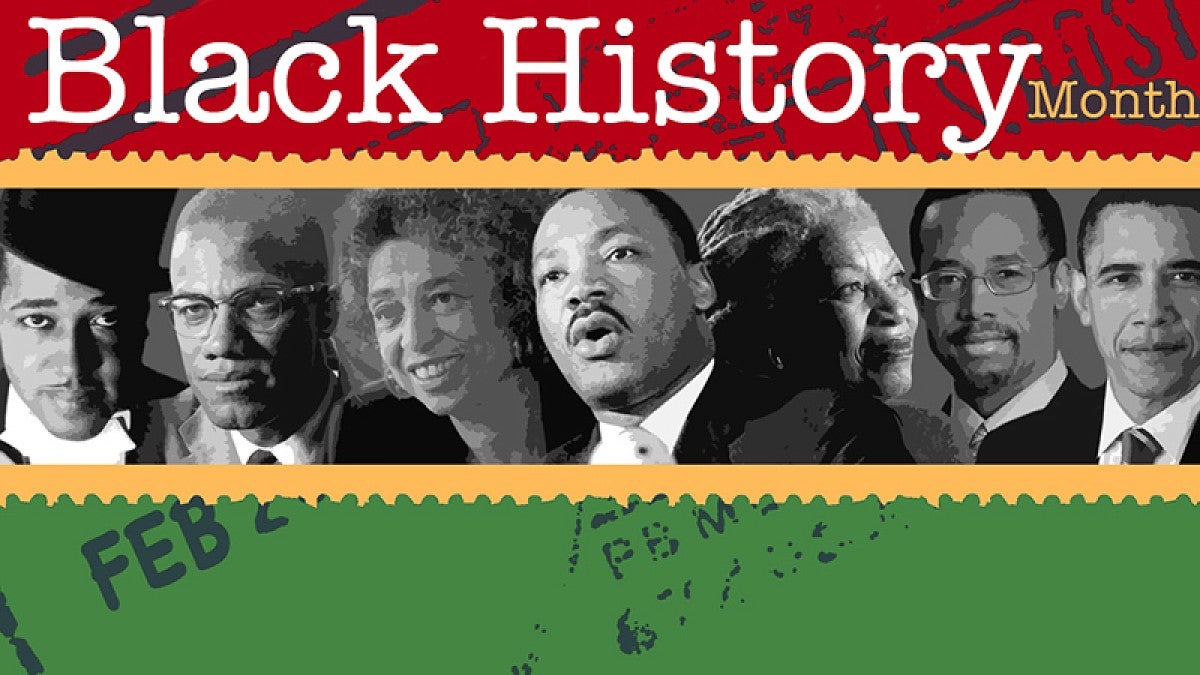Although February is the shortest month of the year, the student and faculty organizers behind the Black History Month events at the University of Oregon hope to make it one of the most influential and impactful, by bringing black history and culture to the forefront of campus conversation.
“Black history is something that should be celebrated every day, particularly because of the history of blacks in Oregon,” said Christina Jackson, the academic adviser and African-American student retention specialist in the UO Center for Multicultural Academic Excellence. “It’s especially important to use this platform of Black History Month to talk about our lives, to celebrate where we come from and who we are as a result of it.”
Jackson noted that a single narrative often surrounds the African-American community, not only at the university but in Oregon and beyond — a narrative focused on the negative aspects of the black experience. With the signature Black History Month event this year, however, the organizers hope to provide a more holistic view of that experience.
For the first time ever, the University of Oregon is officially sponsoring the second annual signature event of Black History Month. On the evening of Wednesday, Feb. 17, a gathering will take place in the Ford Alumni Ballroom titled “Black, Then and There: a Tribute to the Harlem Renaissance.”
Members of the campus community will come together to honor the late leaders of the renaissance as well as recognize a living member of the community with a tribute to the work still being done locally. The dinner event, which features live music by the Roger Woods Quartet, is at full capacity.
“Hopefully, this signature event helps reduce that single narrative and give students a different story to tell,” Jackson said. “There’s diversity within the events we’re having, which will allow people to round out their perspectives.”
In previous years, all Black History Month events at the UO were largely funded by student groups like the Black Student Union. After collaborating in years past with the university and other groups around campus, Jackson said, the Center for Multicultural Academic Excellence became committed to securing cross-campus and institutional support this year.
“I know that a lot of people have been working really hard to put this event on and it will be a really nice way for everyone to come together,” said undergraduate student Sami Berguin, who serves as a programs coordinator for the Black Student Union. “It’s really important for everybody to celebrate Black History Month.”
Berguin echoed Jackson’s sentiment that the events this month aim to dismantle the single narrative of the black students on campus. Because the UO is predominantly white — and many students aren’t required to take ethnic studies courses or similar classes — it’s up to student organizers to hold events that honor both the historic accomplishments and struggles of the past while acknowledging successes and setbacks in society currently.
“I think Black History Month is absolutely necessary to honor the past and to recognize what’s going on in the present,” Berguin said. “I would love to see more students coming out to our events, not just during Black History Month. Our union is open to all students and it’s a safe space for black students — so as long as people can appreciate and respect that, we always welcome allies.”
Berguin hopes that eventually the UO Black Student Union can organize an event on campus similar to the annual citywide Martin Luther King, Jr. Day March hosted by the NAACP Eugene/Springfield chapter every January.
Jackson and Berguin both agree that in the future, they want Black History Month events to be bigger — in regards to scope and audience — and more frequent. Continuing to collaborate with the university to establish more than one signature event is the next step in that process.
“Having the opportunity to be here next year — to be that historian, remembering where we came from a few years ago — I’m hoping that each year we get to do a bit more because our community is getting stronger, more connected and collaborating more,” Jackson said.
For a list of all remaining Black History Month events at the UO, refer to “Black History Month remembers the past, honors the present” on Around the O, or visit the Division of Equity and Inclusion’s website.
— By Nathaniel Brown, Public Affairs Communications


